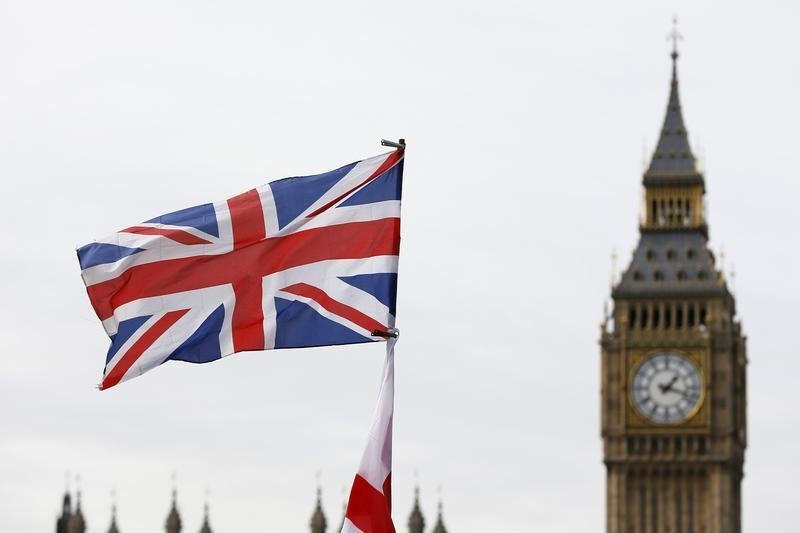Gold prices buoyed by tariff fears; US duties on 1-kilo bars spur supply concerns
Investing.com -- The U.K. economy has seen a modest rebound in May, according to the S&P Global Flash PMIs on Thursday.
The composite PMI, which measures the health of the economy, increased from 48.5 in April to 49.4 in May. This suggests that the negative impact of higher business taxes and the uncertainty caused by the new U.S. tariffs regime is beginning to lessen.
Despite this improvement, the composite PMI still indicates a potential decrease in GDP growth from 0.7% in Q1 to 0.2% in Q2.
The services PMI, a key component of the composite PMI, increased from 49.0 to 50.2, driving the overall rebound. However, the services PMI also suggests a sharp slowdown in non-retail services output growth from 0.6% in Q1 to around 0.0% in Q2.
The manufacturing PMI output balance, on the other hand, decreased from 45.8 in April to 44.8 in May, indicating continued pressure from the US tariffs regime on overseas demand.
Capital Economics noted that near-term price pressures appear to be easing. The services input prices balance in May nearly reversed the increase seen in April due to rises in the minimum wage and employers’ National Insurance Contributions (NICs).
The services output prices balance also dropped from 58.8 to 55.3, its lowest level since October 2024. This suggests that services CPI inflation, which increased from 4.7% in March to 5.3% in April, will ease to just above 4.0% over the next six months.
Capital Economics further stated that this easing in price pressures suggests that the larger-than-expected rebound in CPI inflation in April was likely due to one-off increases, rather than firms passing on more of April’s rise in NICs in their selling prices.
This may provide some support to Capital Economics’ view that the Bank of England will continue to gradually cut interest rates from the current 4.25% to 3.50% next year.
